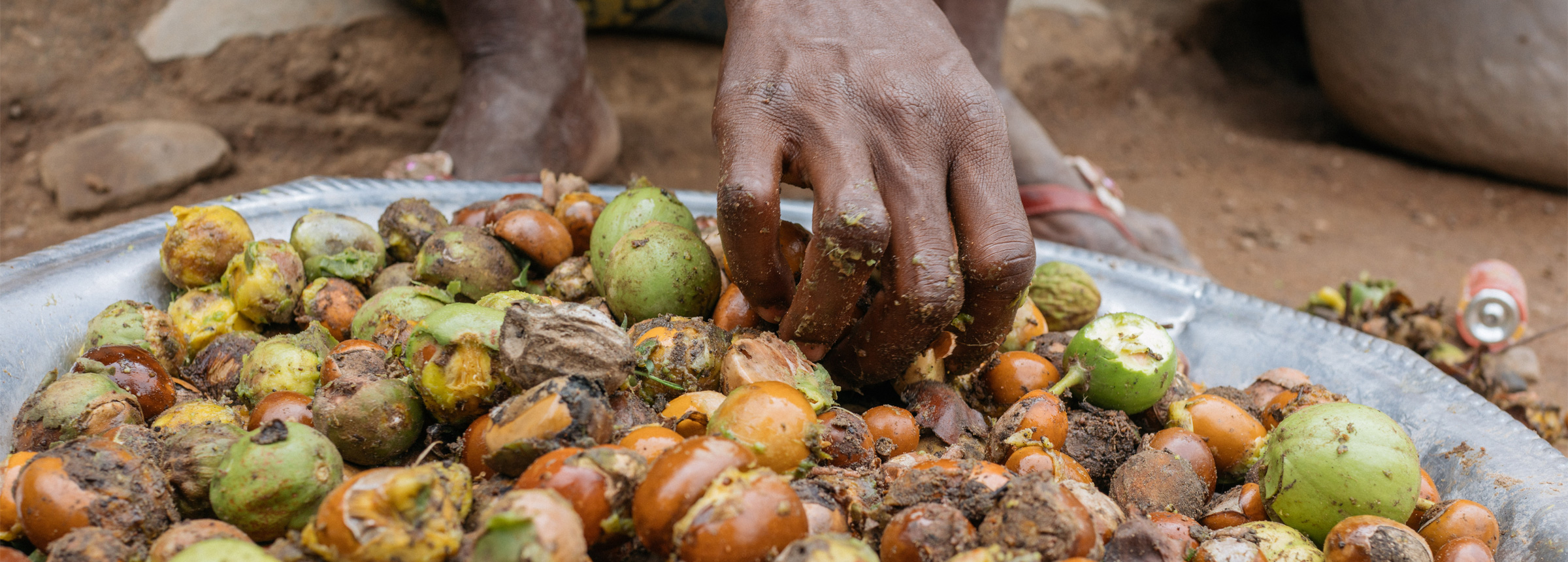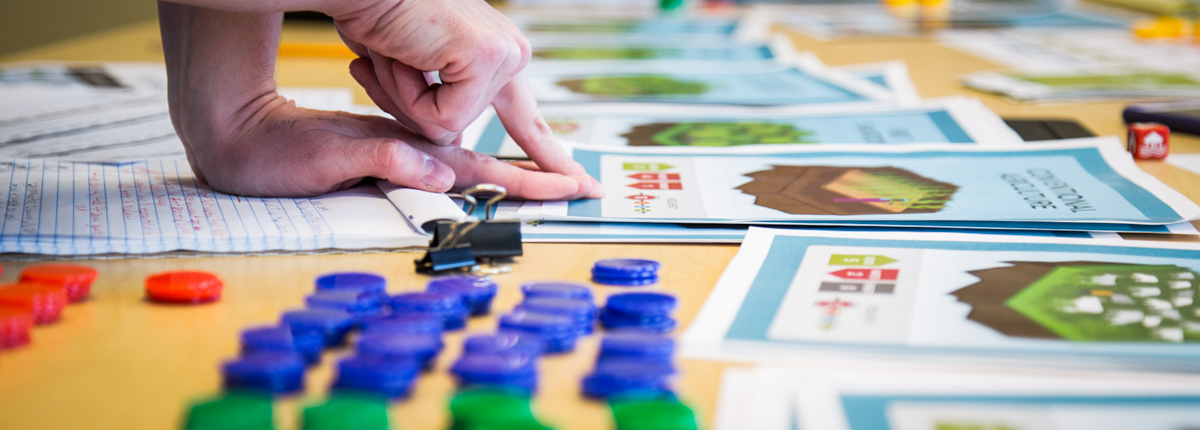
What’s in a Game?
In Ghana, improving livelihoods — and an ecosystem — with a game
Alexandre Grais & Lara Murray

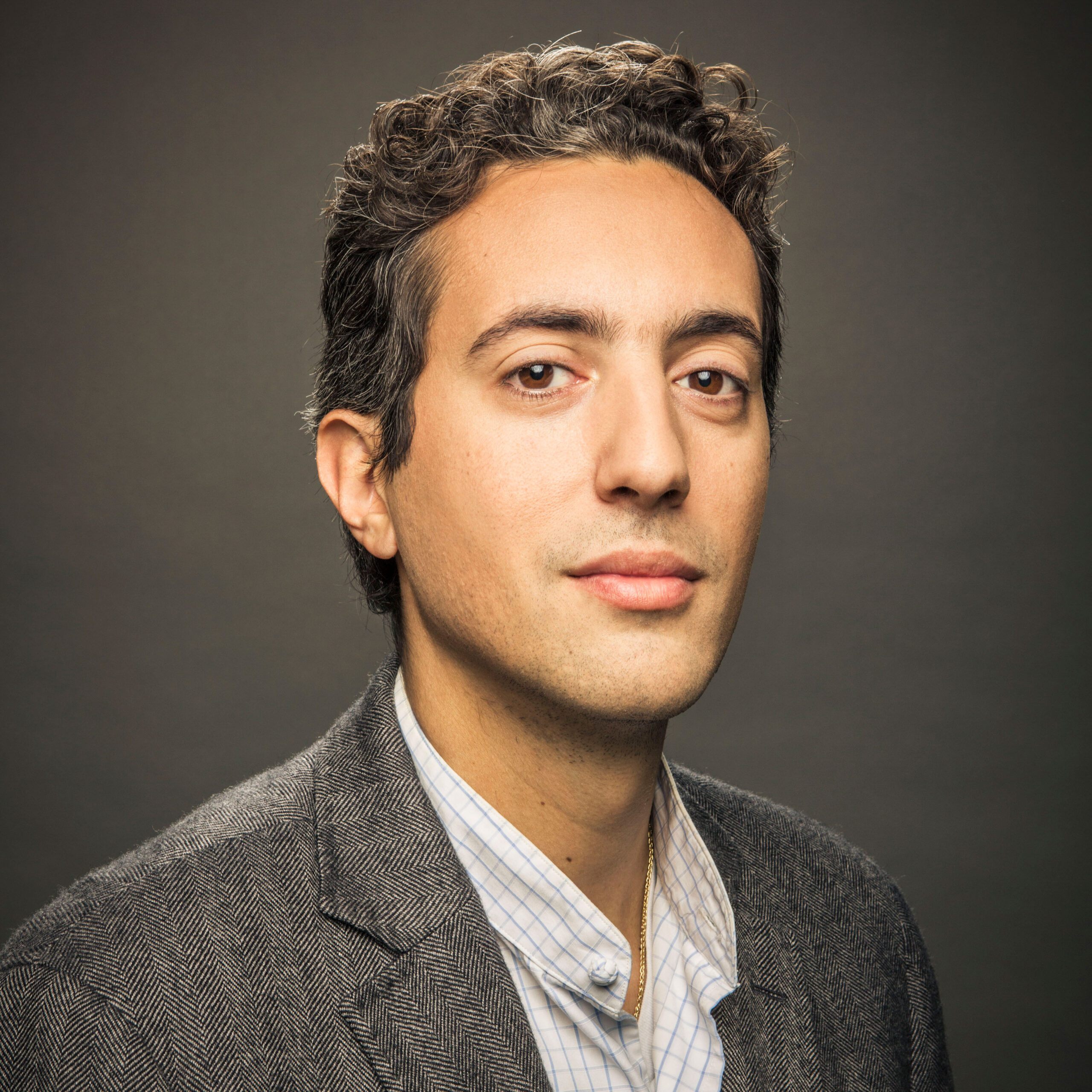
This article was originally published in USAID’s Climatelinks.
In Ghana, a changing climate is affecting the production of cocoa, one of the country’s major cash crops and its second leading foreign exchange earner. USAID and Winrock International worked together to produce ECO Game: Northern Ghana to provide communities with a better sense of land use planning and ecosystem services. The purpose of the game is to show players that more sustainable land uses lead to better long-term outcomes. A follow-up, called ECO Game: Ghana Deforestation-Free Cocoa, is currently under development and scheduled for release in late 2019.
Once an indulgence reserved for Mayan rituals or European high society, chocolate has become a treat that millions of people around the world delight in every day. The basis of this enormous industry is the small Theobroma cacao tree, which produces pods along its trunk whose seeds are processed into chocolate. These trees dominate Ghana’s once heavily forested Western Region. The country supplies 20 percent of the world’s cocoa. The commodity forms the backbone of its economy, and is the primary livelihood of over 800,000 Ghanaians.
Yet cocoa yields in Ghana are declining, with already aging farms suffering from exposure to higher temperatures and drier conditions associated with climate change, as well as pests and diseases. Sustaining Ghana’s cocoa industry, and all those who rely on it, requires a landscape-scale approach to rehabilitate farms, protect natural forests to mitigate climate change and bolster resilience, and empower communities to invest in long-term solutions.
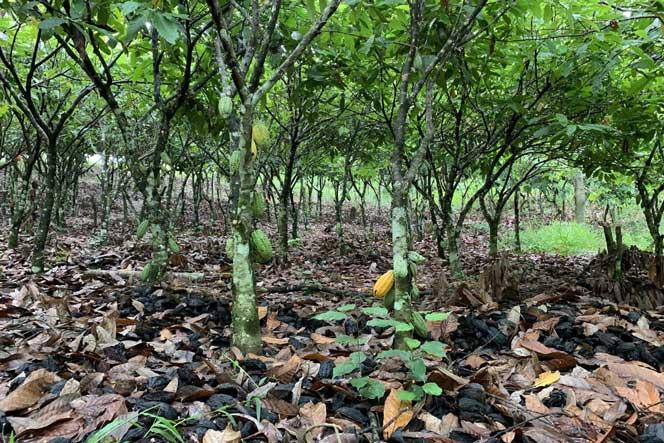
Addressing Threats to Ghanaian Cocoa
USAID’s Supporting Deforestation-Free Cocoa in Ghana Activity is working to accomplish these objectives by combining the financial resources, political will, and public participation to reduce deforestation and promote reforestation by improving tenure security, rehabilitating old and diseased cocoa farms, and promoting participatory community land use planning.
While improving tenure security and the benefits of rehabilitating cocoa farms offer clear, direct benefits to participating communities, the role of natural forests in enhancing long-term mitigation of and resilience against climate change is a harder message to effectively convey. And given the tantalizing draw of gold mining, despite devastating environmental impacts, the imperative to bring to light the value of natural systems is even more critical.
USAID’s Agriculture and Natural Resource Management (AgNRM) project faced this dilemma in northern Ghana, where Winrock International worked to improve sustainable community land use planning. The project completed a technical study on economic benefits and ecosystem services associated with common land uses in the region, yet deep down, we knew that few would read it – not least the farmers in rural communities for whom the information was intended.
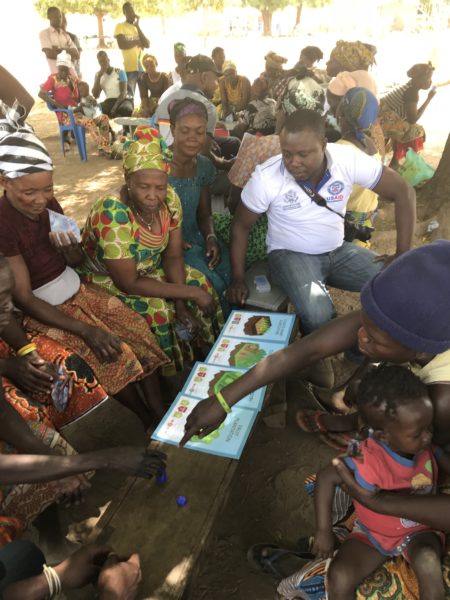
Mobilizing a Community With Games
So why not translate results through a game? We learn best through experiences: making decisions, feeling impacts, and then linking cause and effect. Games simulate those experiences, making them a powerful, fun way to learn sometimes complex and interconnected concepts. Not surprisingly, many games have been created by the development community and educators around the world to explain concepts around water management, climate change, and sustainable development. When we first proposed the idea of a game about ecosystem services and land use planning to our local Ghanaian community mobilizer, Martin Yelibora, he was skeptical, arguing that the communities we were working with make decisions based on immediate economic needs or limitations, not on esoteric concepts like ecosystem health and resilience to climate change.
Nevertheless, Martin and his team provided invaluable support in developing the Eco Game: Northern Ghana, where players strategically select land uses to meet community needs and face natural disasters and economic or social chance events with negative or positive outcomes. Over the course of the game, players learn that selecting land uses that involve more sustainable soil, water, and other natural resource management lead to better long-term outcomes.
And soon enough, Martin was a champion of this approach. On a hot, dry day in Ghana, we huddled under a couple of shade trees while Martin introduced the game to more than 40 attentive community members. Their response was overwhelmingly positive, participating enthusiastically and discussing decisions. After the game, we were delighted to hear players have lively discussions about the impact land use choices had on food and energy production, water needs, and resilience.
We are now working to adapt the game approach through the ECO Game: Ghana Deforestation-Free Cocoa. In this game, players interactively explore challenges and balance the tradeoffs associated with rehabilitating cocoa farms and maintaining forest cover in a landscape where land is scarce, and the boom-or-bust draw of gold mining offers short-term gains. Simultaneously, players grapple with insecure land tenure, regional social and economic forces, and the realities of the climate crisis. We are in the final stages of development, and Martin is eager to roll it out in late 2019.
Click here for more information on the Eco Game.
Related Projects
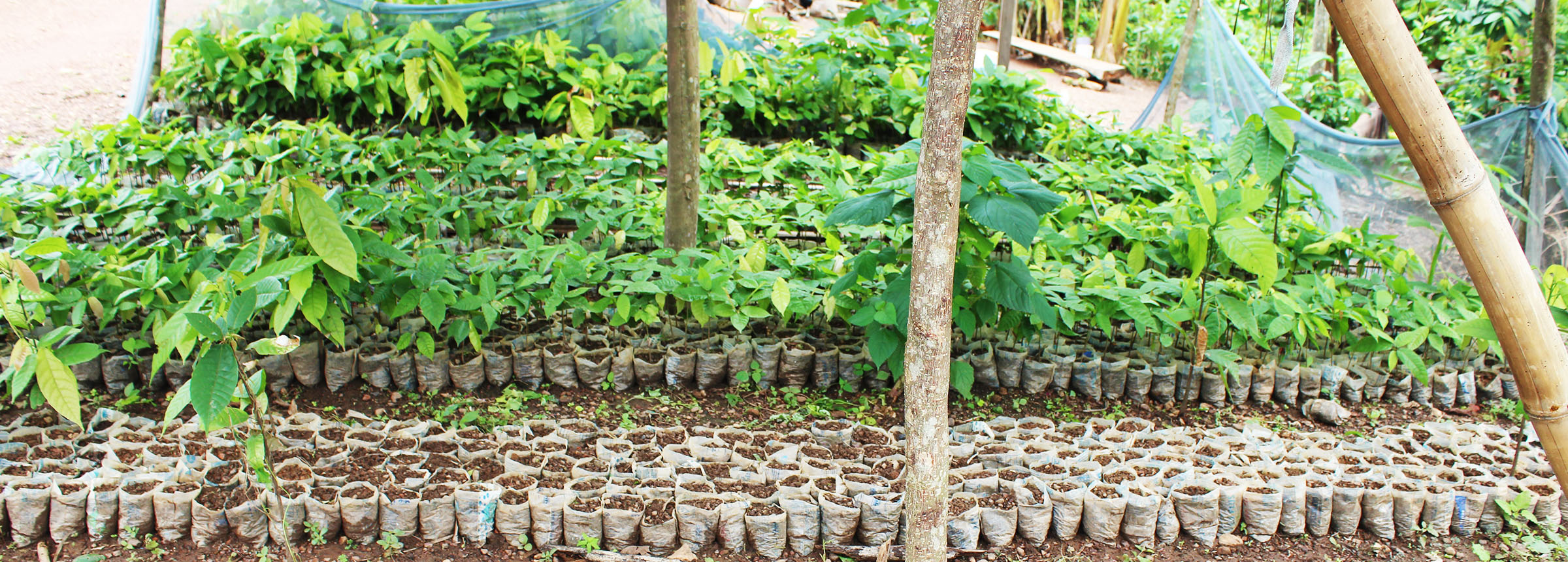
ILRG Cocoa Bridge Phase
Cocoa farming is at risk in Ghana due to climate change, aging plantations, new pests and diseases, land degradation and deforestation. Winrock is continuing its work with Tetra Tech ARD and private-sector partners Ecom Agroindustrial Corp. (ECOM) and the Hershey Company to demonstrate how improving land tenure, tree tenure, and financing cocoa rehabilitation can improve […]